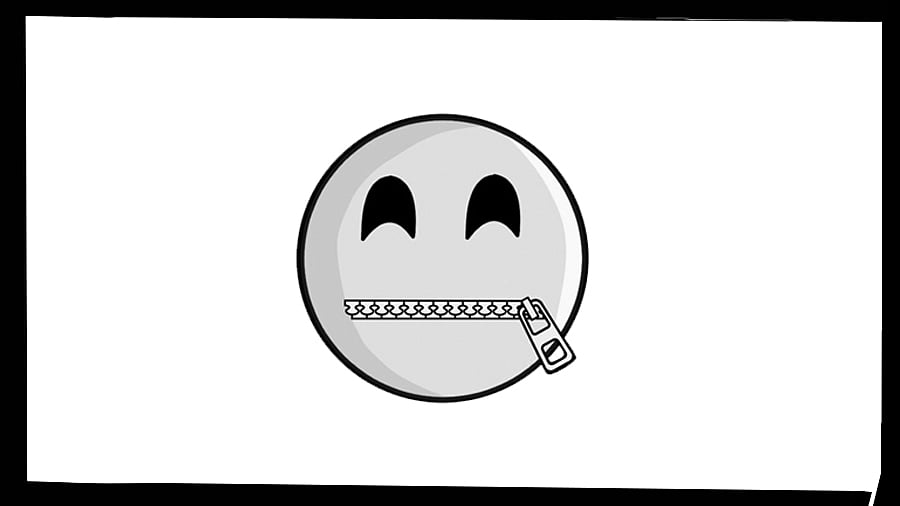
Credit: DH ILLUSTRATION
The Supreme Court must be lauded for enunciating all over again that freedom of expression was an “integral part” of a healthy civilised society. Cancelling an FIR filed in Gujarat against Congress MP Imran Pratapgarhi over a poem uploaded by him on social media, the top court, in a strong reprimand against the Gujarat Police, said the offence of promoting enmity cannot be judged by the standards of “insecure people” who see everything as a threat or criticism. The judgement reaffirmed that the “free expression of thoughts and views by individuals or groups of individuals is an integral part of a healthy, civilised society,” stating that the right to express thoughts, even if they are unpopular or challenge dominant narratives, must be “protected, respected, and cherished.”
It is very relevant to the case of Kunal Kamra, whose barb against Maharashtra Deputy Chief Minister Eknath Shinde during a show in Mumbai, provoked Shiv Sena (Shinde) members, who vandalised the Habitat Studio where the show was filmed and the hotel which housed the studio. It is heartening to learn that even after the police have booked Kamra on the charge of making defamatory remarks against Shinde, and a Shiv Sena leader issued a warning to the comedian that he would be chased across India and forced to flee the country, Kamra is holding the ground.
Kamra’s fundamental strength lies in his courageousness in an age of self-censorship. Not that what he says is earth-shatteringly original, but viewers seem to take relish in his potshots against one and all. In a recent post on X, Kamra shared a satirical ‘step-by-step guide’ on how to ‘kill’ an artist ‘democratically’, which appears to reflect on the aftermath of his joke on Shinde – “Now the artist is left with only two choices: Sell their soul and become a dollar puppet – or wither in silence.” “This isn’t just a playbook,” Kamra writes, it is “a political weapon,” “a silencing machine.”
One might argue that politicians, being public persons, cannot claim immunity from barbs, because their craft and calling thrive on polarisation and political opposition. Thus politicians, and that includes our elected heads such as the chief ministers and the Prime Minister, must not pretend to be godheads in a democracy.
Eknath Shinde can take heart in the rambunctious tradition of British humour. The 18th century was witness to the rise of the Tory and Whig political parties, an age of political pamphleteering and newspapers, that set the London coffee houses on fire. Jonathan Swift, the scalding author of the political satire Gulliver Travels was a notoriously vicious Tory hack, way more potent than Kamra.
The perverse relish an 18th-century writer had in portraying the great politicians defecating, urinating, fornicating, being disembowelled and suffering from flatulence in their caricatures can invite direct libel and lawsuits in India. Salman Rushdie named a dog after a celebrated Indian prime minister in one of his novels, and it caused a great furore.
What is interesting is that while Shinde is reacting, Prime Minister Narendra Modi is reticent. But the received opinion is that dictators being deflatable, the itch to puncture their big egos is just par for the course. Kamra’s stuff might look piffle if one makes a fair register of how American political jokes reduced presidents and leaders to an irreducible essence. Thus, Nixon was incorrigibly shifty and sinister, Ford was an amiable bumbler, Carter was nice but out of his depth, Reagan was just dumb, Bush Senior was a cold wasp, Clinton was a sex maniac, Quayle was stupid, Gingrich was callous, Gore was a bore, Hillary was a modern Lucrezia de Borgia and Trump today is “weird” (once a vice-presidential candidate Tim Walz called it).
‘Offended’ mobs have their say
Governments in India have always lent more primacy to the right to take offence than to the right to free speech and capitulated to the lumpen elements and mob intimidation, two glaring instances of which is the way both Taslima Nasreen and M F Husain were hounded out of the country many years ago. And just in case our libertarian rage is ranged against the Sangh Parivar, it must be put on record that the Left Front government of West Bengal also banned Nasreen’s books in 2004 and confiscated copies of the book from the publisher and book-sellers, not to speak of the classic ban on Salman Rushdie’s The Satanic Verses by the Rajiv Gandhi government in 1988.
In his book Republic of Rhetoric: Free Speech and the Constitution of India, Abhinav Chandrachud, went as far as to say that the enactment of the Constitution did not make a significant difference to the right to free speech and that Articles 19(1)(a) and 19(2) belonged to the status quo aim of the Constitution, not the transformational one. Four exceptions (prior to India’s independence) to the right to free speech – sedition (and hate speech), obscenity, contempt of court and defamation – that remained intact even after the Constitution was adopted have always remained susceptible to interpretational vagaries.
The apex court agreed that literature, including poetry, dramas, films, satire, and art make the life of human beings more meaningful. But the apex judicial body was wrong to assume that 75 years into our republic, we’ve become so mature that it becomes improbable to think that the “mere recital of a poem or for that matter any form of art or entertainment, such as stand-up comedy, can be alleged to lead to animosity or hatred amongst different communities”. A democratic society cannot thrive without irreverence – be it in the form of satire, parody, irony, or mockery in combination with dissenting ideas on religion or philosophy. In the absence of an ecosystem for free speech, the urge to raise virtual platforms with technological means to circumvent state and group censorship will only grow.
(The writer is a Kolkata-based commentator on geopolitics, development, and culture)